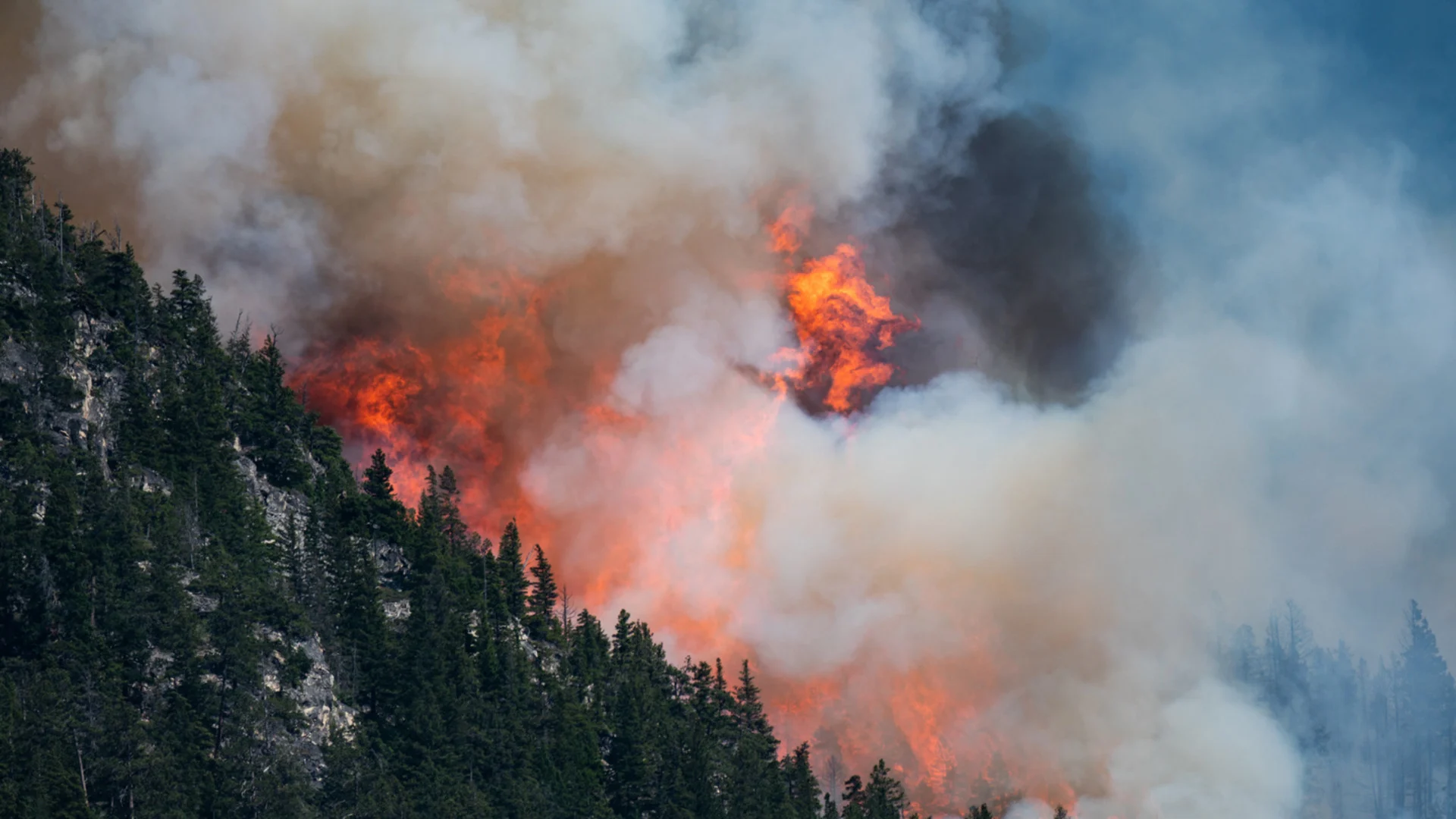
‘Coinciding crises’ increase the urgency for action on climate health impacts
Climate change is causing global insecurity across sectors and worsening health outcomes, and a new report from The Lancet cautions putting “health at the mercy of fossil fuels.”
The risks to human health are growing as the climate crisis exacerbates instability in various health-related sectors across the globe, a new study has found.
The report, compiled by researchers for The Lancet, determined that climate change is setting off coexisting crises in the spread of infectious diseases, food insecurity, energy poverty, and disease related to heat and air pollution.
The researchers also put particular emphasis on the root causes of the crisis, noting that “governments and companies continue to prioritize fossil fuel interests to the detriment of the health and wellbeing of all people in every corner of the world.”
See also: Wildlife analysis shows 'terrifying' decline in populations, says WWF director
In highlighting this, the report’s authors revealed that as many as 80 per cent of nations had provided subsidies to the fossil fuel sector, at a total of $400 billion (USD), which for some countries exceeded the entire national healthcare budget.
“Our report is an exhaustive tracking of around 45 indicators that are helping to try and illustrate how our health is being impacted today by climate change,” Ian Hamilton, Professor of Energy, Environment and Health, University College London, told The Weather Network.
Hamilton, who is also a lead author on the report, added that the findings are clear that “climate change is increasingly posing a risk to our health and well-being.”

Pyrocumulonimbus cloud near Lytton, B.C. in June 2021. (Kyle Brittain)
The study had cautionary findings for Canadians, notably related to heat waves like the B.C. heat dome in 2021, which saw the town of Lytton reach a record temperature of 49.6C, and caused more than 600 deaths, according to the B.C. Coroners Service.
“We know that different populations are impacted differently by heatwaves,” Dr. Courtney Howard, co-author of the Lancet Countdown Policy Brief for Canada, told TWN.
“Young children are less able to adapt to highly increasing temperatures, as are elderly people, so those are two of the groups that the study found to be really impacted."
“The heat dome in Vancouver really posed a disruption to health systems there,” Dr. Howard added, noting an upheaval in hospitals that matched or exceeded that experienced during the pandemic.
From 2000-2004 to 2017-2021, the report found heat-related deaths increased by 72 per cent in Canada, and in 2021 the Canadian economy lost 0.05 per cent of GDP and 43 million labour hours to extreme heat conditions.
Watch below: Looking back at Lytton's devastating wildfire one year later
Worldwide, extreme heat in 2021 resulted in the loss of $669 billion (USD) in income and 470 billion potential labour hours, with the agricultural sector the most adversely affected.
The report highlighted the global impact climate change was having on food security, with extreme weather conditions like flooding and droughts impacting production in numerous regions, resulting in lower crop yields — as was seen in wheat and mango harvests during the Indian heat wave earlier this spring — and the consequent economic and social instability.
Hamilton also noted the increased ability of infectious diseases to spread in a warming world, such as pathogens that have lain dormant for millennia in the cold basins of the Great Lakes, or the as-yet-unencountered and potentially deadly microbes thawing in the High Arctic.
“We are seeing a lot of changes in ‘vectorial capacity,’ environments that have changed because of climate change and are better able to hold diseases,” Hamilton explained, listing malaria and Dengue fever as examples.
“People are coming into exposure with those diseases that haven’t been before, the risk of infection has increased,” he added.
The report does see cause for hope, however, finding that shifting to much cleaner renewable energy will save 1.3 million lives a year due to improvements in air quality.
Other recommended adaptations include shifting toward a plant-based-diet — which “has health co-benefits from improvements in dietary risk factors and mortality from non-communicable diseases” — and changes to urban design that address heat exposure.
As the impacts of climate change worsen, these adaptations will be necessary not just at the local but at the global level.
“We need to make sure that each province and territory, each country, knows what climate-related impacts are going to affect health systems,” Dr. Howard said, “and develop a plan that can cope with those and at the same time work towards a net-zero health system.”
Hamilton added that climate-related health risks are even more of a challenge during “coinciding crises.” However, that also increases the urgency.
“We need governments to take actions,” he said, “but doing so in ways that are fair and equitable. We really can't afford to have certain groups benefiting from the actions that may contribute to climate change, without there being a fair way of being able to ensure that livelihoods are protected, that health is protected in the actions that we take.”
Thumbnail image: Fire in Lytton, British Columbia during June 2021. (Kyle Brittain)











